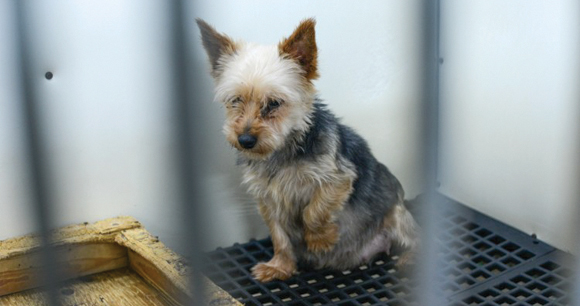The US Department of Agriculture is making significant changes to the licensing requirements under the Animal Welfare Act (AWA), and is increasing requirements for dogs at the premises of dealers, research facilities, and exhibitors. The final regulations, published in the Federal Register on May 13, will go into effect in November.

Year after year, licensees with histories of subjecting their animals to appalling mistreatment have had their annual license renewals rubber-stamped by the USDA, resulting in the continued suffering of untold numbers of animals. However, under the new regulations, the USDA will be ending its practice of automatically renewing the licenses of dealers and exhibitors regardless of whether they are in compliance with the AWA. In the fall, the USDA will begin requiring all new or existing licensees to apply for new licenses every three years, and each will have to demonstrate compliance with the minimum standards under the law through pre-license inspections.
Unfortunately, each applicant for a license will have up to three chances to pass its pre-license inspection. Further, each of these inspections will be scheduled in advance, providing an opportunity for the facility to hide or gloss over any deficiencies before the inspector arrives. Inspectors will be busy conducting pre-license inspections, so it is unknown how many unannounced compliance inspections will be possible during the three-year period between pre-license inspections. Particularly disturbing is that it appears that any citations the licensee receives during unannounced compliance inspections—regardless of how egregious or numerous they may be—will not be considered by the USDA in determining if a new license will be issued. Instead, the department will only consider the results of its announced pre-license inspections.
The other change mandates new, more extensive requirements—but just for the care of dogs, not for all species. These additional requirements are welcome, but it is incongruous that dogs are the only beneficiaries. Under the new rules, “Facilities with dogs will be required to have an expanded Program of Veterinary Care (PVC) that includes annual, hands-on veterinary exams for adult dogs by the attending veterinarian and addresses husbandry issues for hair coat, toenails, teeth, skin, eyes, and ears.” Medical records regarding treatment of ill and injured dogs and preventive health care will be required. Research facilities will have to maintain records for three years after the death of the dog, but dealers and exhibitors will only be required to maintain them for one year. Finally, dogs must have continuous access to potable water, while cats and monkeys may still have their access to water limited to twice a day, and other species may receive water only once a day. Continuous access to water so that animals do not suffer from thirst is essential to animal health and well-being. It is incomprehensible that the USDA has again failed to implement basic animal welfare and veterinary care standards for all covered species.
The USDA must seek to ensure that all of its inspections, whether pre-license or routine compliance, are conducted in a thorough, well-documented manner. It must also continue to use unannounced inspections and, if warranted, take appropriate enforcement actions. And it is essential that the department further revise its regulations to expand its most basic requirements for veterinary care and continuous access to water to all the animals it regulates.